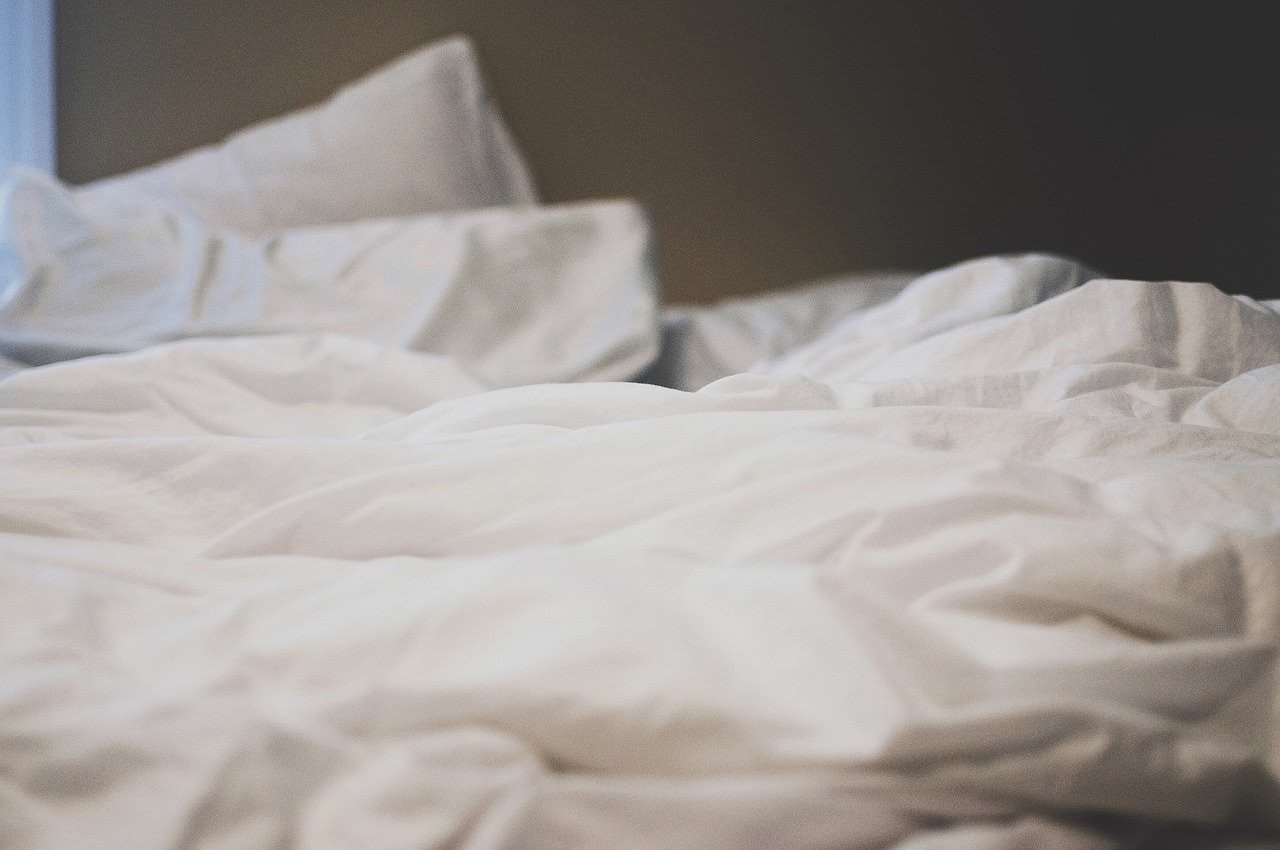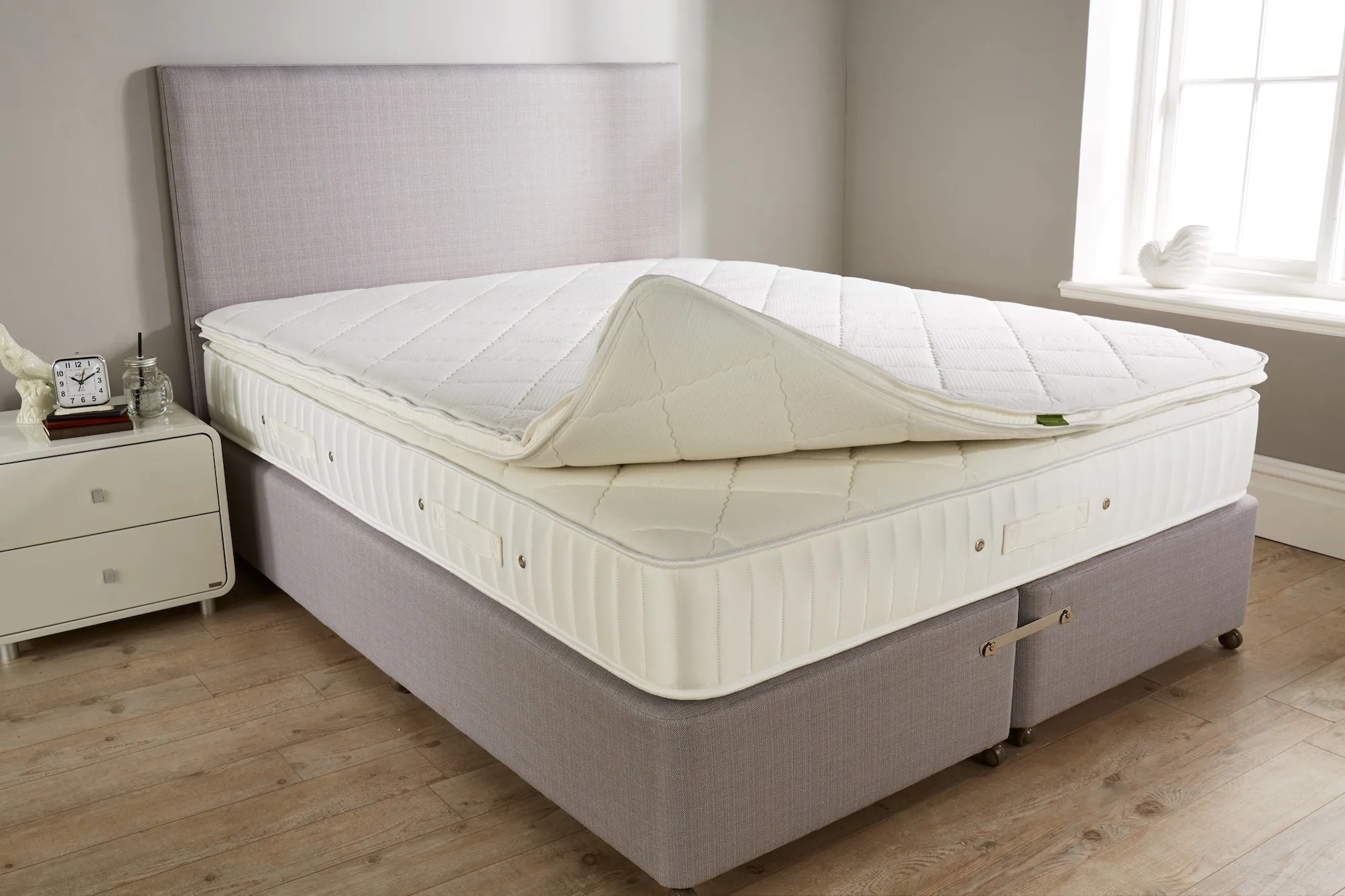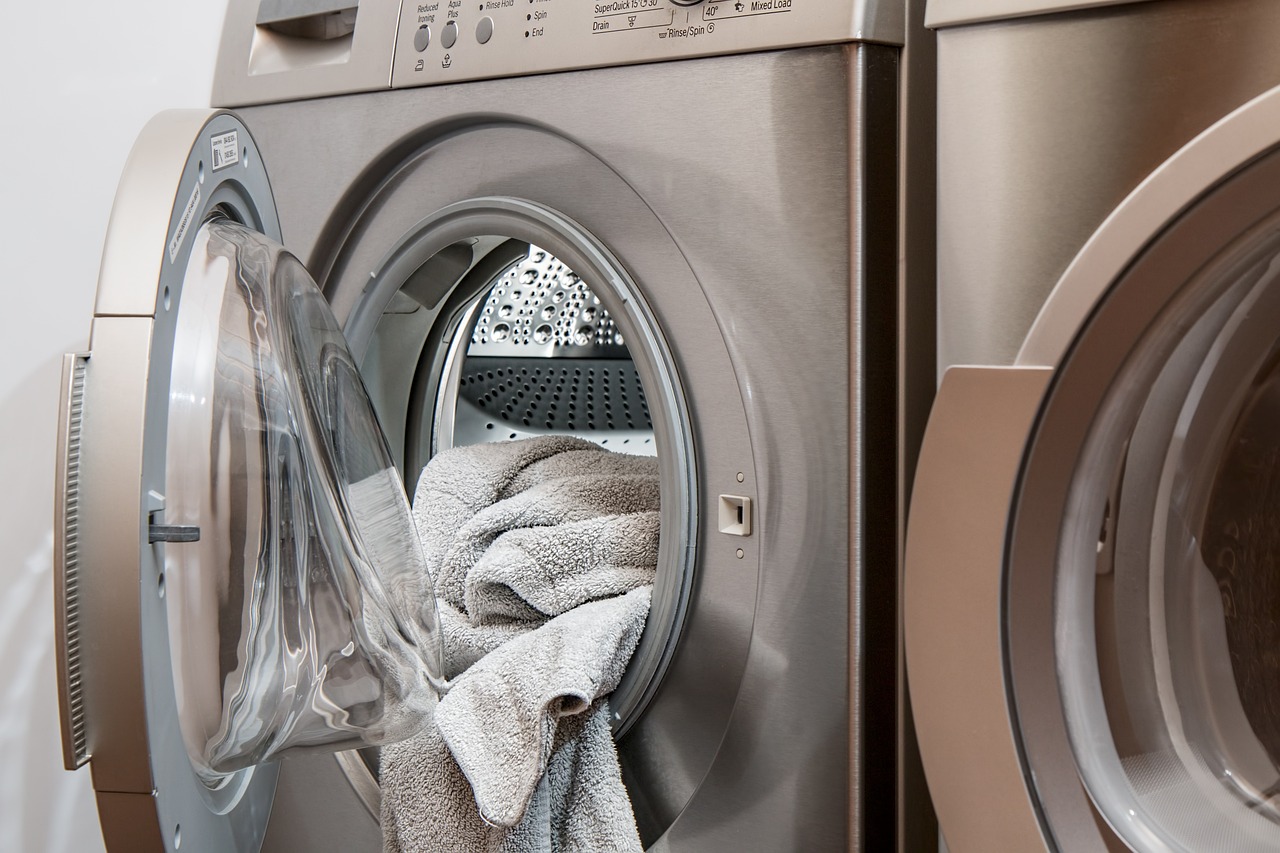Bedsheets and the best machine wash temperature to kill bugs
Why is there suddenly a resurgence of bed bugs?
With the recent reports of a global resurgence of bed bugs, many are panicking about bed bugs infesting their homes. There has been a flurry of headlines and social media posts documenting this worldwide breakout of bed bugs, but why are they seemingly everywhere all of a sudden?
According to pest control experts, the reason for the increase in reports of bed bugs is likely to be because of a spike in international travel post-pandemic alongside a rise in sales of second-hand furniture, a fall in people being able to afford pest control because of the cost-of-living crisis, and a hotter than usual October, as bed bugs thrive in warmer months. As well as this, bed bugs are becoming more resistant to insecticides traditionally used to exterminate them.
Data from the British Pest Control Association and pest control company Rentokil shows that British bed bug infestations have risen by 65% year-on-year, with roughly 12,000 bed bug-related callouts every year. This was before the Paris outbreak, too. Bed bugs have long been a problem in major cities across the world. In fact, Paris launched its anti-bed bug campaign three years ago after noticing an upturn in the insects.
How do bed bugs travel?
Reports of bed bugs usually rise in the summer as people travel more. Bed bugs latch onto humans, clothes, and suitcases and can travel from place to place this way. The bugs tend to come out at night, attracted to the heat and body odour of a person sleeping. They can sense where someone is by the carbon dioxide in their breath.
Bed bugs can spread rapidly, with female adult bed bugs laying up to 10 eggs a day and 200-500 in their lifetime. Despite their name, they are not only found in beds. They can often be found under cracks in skirting boards, behind wallpaper, in furniture, or even in electrical sockets and fittings. Unfortunately, they are becoming resistant to insecticides, so prevention is key.
How do I prevent a bed bug infestation?
If you keep your bedroom, bedsheets and mattress clean and hygienic, then you are less likely to suffer from an infestation. Follow the tips provided in this blog to clean your sheets effectively and protect your mattress from sweat, dirt and other bodily fluids.
If travelling, make sure you keep your suitcase off the bed and store it on a luggage rack, if one is provided. Check the mattress and sheets thoroughly for bed bugs before sleeping in it, and make sure you pack a spare bag to seal your dirty clothing in once you’ve worn them. If possible, it’s best to keep your room cool at night, too, as according to the British Pet Control Association (BPCA), “the ideal temperature for an adult bed bug to thrive is between 70-90°F.” Using hard-cased luggage where possible will also help prevent bed bugs from spreading, as it is more difficult for bedbugs to latch on hard materials.
Upon returning home from travelling, unpack your clothes away from your bedroom, ideally on hard floors, as you may not be able to see bed bugs on the carpet. Wash all your clothes, even those you didn’t wear, on the hottest cycle your clothes allow. Then, check your suitcase thoroughly for evidence of an infestation.
It’s easy to forget about bedroom hygiene, by the time you’ve finished work or had a long day you just want to slip into bed and fall asleep. Which is why it’s so important to make sure that your bedroom, mattress and bedding is as clean as possible to help you rest soundly.

One of the most overlooked parts of home cleaning is bedsheets and washing bedding correctly. We will give some top tips to ensure your bedroom is a haven for health and relaxation with our bedding washing and cleaning guide below.
- What temperature should I wash my bedding on?
- What temperature should I wash a mattress topper on?
- How to revive a lumpy or sagging mattress topper
- Cleaning a mattress comforter or throw
- Mattress protectors to keep your bed clean
- How often should I wash my bedding?
- Should I use biological or non bio washing powder for bedding?
- Duvet cleaning tips
- How can I keep my bedroom healthy to avoid illness?
What temperature should I wash my bedding on?
Whilst there’s been a big drive to reduce washing temperatures for clothes, down to 30 degrees bedsheets are in a different category.
Take for example the fact you’re spending 7-9 hours each night in bed. Over a week that’s between 49-63 hours where you’re in direct contact with duvets, bedding and linen.
Whilst a 30-degree machine wash may keep a t-shirt clean that you’ve worn for a day or two it won’t cut it for your bedding. You probably wouldn’t wear the same top or pants for that amount of time, so a 30-degree wash simply isn’t intensive or hot enough to kill bacteria.
When washing bedding you want to wash at 60 degrees on a long wash ie 2 hours plus to make sure that any sweat, dander, dust or other nasties are killed and then removed.

What’s the best temperature to wash a mattress topper?
Mattress toppers also can benefit from a good wash each month again to make sure that any sweat or dirt get cleaned away. Ensuring your bed stays lovely and clean for the perfect night’s sleep.
Mattress toppers often need to be washed at a lower temperature this is because they contain high loft fillings such as wool, soft polyester or chipped foam. If you wash these at a high 60 degree temperature, it can cause them to shrink and warp.

The best temperature to clean a mattress topper is 40 degrees on a short cycle with a low spin speed. This is because high washing machine spin speeds can cause the fibres to shift and move about within the topper. A shorter cycle reduces the potential for fibres to warp or shrink during the wash.
How to revive a lumpy or compressed mattress topper
If you have a polyester mattress topper that’s compressed or turned lumpy, there is a cure! Put your topper on a 40-degree wash (after checking that it’s machine washable and not dry clean only). Then put it in a tumble dryer on ‘gentle heat’ or ‘warm air’ setting for 30 mins to then re-fluff it up.
The gentle action of the dryer will help shake out the contents of the mattress topper and better spread them back into an even position. This can help remove lumps and breathe life into your mattress topper. Saving you money and meaning less bedding going to landfills or the rubbish bin!
Cleaning a mattress comforter
Mattress comforters differ from toppers as a mattress comforter is a thicker blanket that is placed on top of your bedding. A mattress comforter helps to keep you toasty warm in bed and are more commonly found in the USA. In the UK, we call these blankets or bed throws which are a more decorative layer of bedding to help style your bedroom or add more warmth to your bed sheets or duvet.
Mattress comforters or throws often have very specific cleaning instructions. Some decorative mattress comforters or throws need dry cleaning, for example. Always check the instructions.
Given that a mattress comforter sits on top of the mattress and bedding they don’t need as thorough a clean as you aren’t sleeping directly on top of them.
For the most part, if your mattress comforter is machine washable, then a 30-degree quick wash and then a line dry is enough to keep them clean and fresh.
Using a mattress protector to keep your bedroom clean
Another top tip is to make sure you’re using a mattress protector on your mattress. We can’t stress this enough. Given everyone sweats and perspires during the night, this is the only sensible way to avoid sweat and fluids soaking into the mattress. Thus breeding bacteria and other potential allergens that could end up disturbing your sleep or worst case, making you ill.
You can’t put your mattress into the washing machine so the next sensible step is to use a removable mattress protector which can then be washed, at 60-degrees, acting as a barrier between any fluids and you’re lovely mattress. This not only keeps your bedroom cleaner and therefore you in a healthier sleep regime but also prevents sweat from corroding your mattress spring unit or damaging your upholstery fibres.
Mattress protectors are relatively cheap and should be washed weekly along with your bedding. You can then replace these every year, recycling the old one which will help keep your mattress looking as good as new.
The benefits of a mattress protector
- Mattress protectors stop your mattress from becoming stained or damaged from sweat
- Protectors can be machine washed helping to keep your mattress clean
- Mattress protectors extend the life of your mattress by acting as a barrier between your mattress and bodily fluids
- Mattress protectors can keep your mattress smelling fresh far longer than without

How often should I wash my bedding?
The first thing to say is it depends on how often you sleep in your bed. With different lifestyles and work regimes, some people may only spend part of their week at home.
As a rule of thumb, your bedding should be washed every 7 nights sleep.
Remember the 49-63 hours of contact in 7 nights sleep? So every 7th night you should be washing our bedding.
If you’re stuck for time or in a rush then the priority should be the bed sheet you lie on directly over the duvet. However, to ensure that all bacteria is killed and your bedroom is clean washing all sheets and airing your duvet is essential.

Should I use biological or non biological washing powder when cleaning my bed sheets?
Biological and non-biological washing powders are two types of laundry detergents that differ in their formulation and usage. When it comes to washing bedding, there is a preference for biological washing powder, which is much more effective at breaking down stains, sweat and blood that may be found on bedsheets and mattress toppers.
The main difference between them is the presence or absence of enzymes between biological and non-bio washing liquids for bedding, which are natural proteins that help break down stains and dirt.
Here are some key differences to be aware of when choosing bedding detergent:
- Enzymes: Biological washing powders contain enzymes that are effective in breaking down proteins, starches, and fats, making them highly effective at removing tough stains like blood, grass, and food stains. Non-biological washing powders, on the other hand, do not contain enzymes and rely on other chemical ingredients for stain removal.
- Sensitivity: Biological washing powders may cause skin irritation or allergic reactions in some people, especially those with sensitive skin, due to the presence of enzymes. Non-biological washing powders are typically considered to be gentler on the skin and are often recommended for those with sensitive skin or allergies.
- Temperature: Biological washing powders are typically designed to work best at higher temperatures, such as 40°C and above which is better for bedsheets, as the enzymes are more active in warmer water. Non-biological washing powders can usually be used at lower temperatures, including cold washes but won’t remove sleep stains as effectively.
- Eco-friendliness: Non-biological washing powders are generally considered to be more environmentally friendly as they typically contain fewer enzymes and other chemicals compared to biological washing powders. However, the environmental impact of a detergent depends on its overall formulation, packaging, and production processes. Sometimes you need to wash bedding more times with a non-bio detergent so it can be a false economy for the environment.
- Odour: Biological washing powders may have a stronger scent due to the presence of enzymes, which can break down organic compounds that cause odours such as sweat and urine that maybe found on your bedsheets. Non-biological washing powders may have a milder or no scent.
- Stain removal: Biological washing powders are generally more effective at removing tough stains, especially those caused by proteins and enzymes, such as sweat, saliva and skin oil compared to non-biological washing powders.
It’s important to carefully read and follow the instructions on the packaging of your washing powder to ensure you use it correctly and get the best results. Consider your personal preferences, skin sensitivity, and environmental concerns when choosing between biological and non-biological washing powders.

The best option for the cleanest sheets however remains with biological washing powder at 40 degrees or higher.
How to ‘Air’ your duvet
If you use a duvet in a cover on your bed then a weekly airing is also advisable. This helps remove any dampness that may have built up in a warm bedroom and let any dust fall away from the duvet, which can then be vacuumed up with your bedroom cleaning regime.
You can either hang it over a bannister or simply give it a shake with a window open and then leave it hanging over a chair for an hour or so. The easiest way to do this is when you’re washing your bedding.
A clothes horse or clothes drying rack can be useful also to help air your duvet.
By ventilating your bedroom with an open window, you’re helping to keep the duvet dry and free from bacteria that love damp warm conditions.

How can I keep my bedroom clean to avoid illness?
We get asked often whether someone’s bedroom could be making them ill, mainly due to allergies or respiratory problems during the night. Waking up wheezing, coughing or generally disturbed sleep could be down to your mattresses cleanliness.
It’s fair to say that a lax cleaning regime in the bedroom can lead to an increase in dust, bacteria, dampness and other unwanted conditions. All of which are not ideal for sleep or well being. We have written a detailed article here on how to keep your bedroom clean in 4 easy steps.
Keeping your bedroom healthy can be achieved relatively easily by taking the following mattress care steps:
- Vacuum your mattress monthly both sides with a small vacuum attachment – This removes dust and dead skin
- Use a mattress protector – which can be washed at 60 degrees to kill bedroom bacteria
- Turn & Rotate your mattress monthly – which will ensure you’re keeping it well-aired and also help extend the life of your mattress
- Clean under your bed frame or divan – the step which most people forget (have a look under your bed now, you may be shocked!)
- Use a biological detergent where possible on a 60-degree wash.

It may sound obvious but bedroom cleanliness and hygiene really do make a difference not only to your sleep but health in general. By washing bedding every 7 sleeps on a 60-degree wash you can help reduce allergens and potential bedroom related respiratory issues. Using a mattress protector will help keep you and your mattress in tip-top shape acting as a barrier between sweat and bacteria growing in your mattress. Lastly vacuuming, dusting and airing your bedroom frequently will all help to ensure a relaxing nights sleep.
If you need more mattress help when choosing a new bed then why not give our small friendly team a call on 0161 437 4419 or drop us a message below for more help?


Ask us a question.
There are over 6000 questions and answers submitted by you on all questions about mattresses and bed problems. Enter a keyword such as Vi Spring, John Lewis beds, bad back or Memory Foam and see if your question has already been answered.
You can filter popular questions by the categories below. If you can’t find an answer, ask a new question below. We aim to respond to all questions within one working day.




































 Mattresses
Mattresses  Take our mattress quiz
Take our mattress quiz  Contact
Contact  About us
About us 


